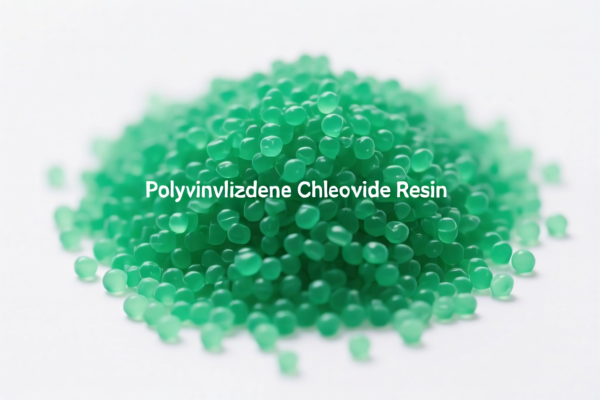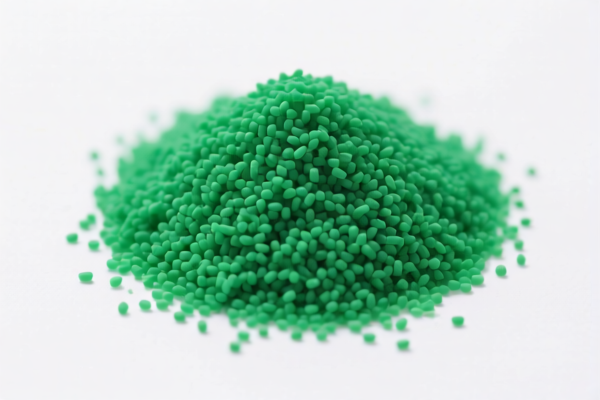| HS Code | Official Doc | Tariff Rate | Origin | Destination | Effective Date |
|---|---|---|---|---|---|
| 3904500000 | Doc | 61.5% | CN | US | 2025-05-12 |
| 3904905000 | Doc | 61.5% | CN | US | 2025-05-12 |
| 3907400000 | Doc | 60.8% | CN | US | 2025-05-12 |
| 3902100000 | Doc | 61.5% | CN | US | 2025-05-12 |
| 3903190000 | Doc | 61.5% | CN | US | 2025-05-12 |




Product Name: Food Grade Polyvinylidene Chloride Resin
Classification: Based on the provided HS codes and descriptions, the most appropriate classification for Food Grade Polyvinylidene Chloride Resin is HS CODE: 3904500000.
✅ HS CODE: 3904500000
Description:
- Food-grade polyvinylidene chloride resin, which falls under HS Chapter 3904, specifically for polyvinyl chloride or other halogenated ethylene or propylene polymers in primary form.
📊 Tariff Breakdown (as of now):
- Base Tariff Rate: 6.5%
- Additional Tariff (General): 25.0%
- Special Tariff after April 11, 2025: 30.0%
- Total Tariff Rate: 61.5%
⏰ Time-Sensitive Policy Alert:
- April 11, 2025 Special Tariff:
A 30.0% additional tariff will be imposed on this product after April 11, 2025. This is a critical date to note for customs clearance planning and cost estimation.
📌 Other Possible HS Codes (for Reference):
- 3904905000 – Polyvinyl chloride resin (food grade), also under 3904, but for "other" categories.
- 3907400000 – Food-grade polycarbonate resin (HS 3907).
- 3902100000 – Food-grade polypropylene resin (HS 3902).
- 3903190000 – Food-grade polystyrene granules (HS 3903).
🛑 Important Notes for Compliance:
- Verify Material Specifications: Ensure the product is indeed polyvinylidene chloride (PVDC) and not misclassified as another polymer (e.g., PVC, polystyrene, etc.).
- Check Unit Price: Tariff calculations depend on the FOB price and product classification.
- Certifications Required: Food-grade materials may require food safety certifications (e.g., FDA, GB standards) for import compliance.
- Documentation: Ensure proper commodity codes, certificates of analysis, and product specifications are included in customs declarations.
📌 Proactive Advice:
- Confirm HS Code with Customs Authority: Double-check the classification with local customs or a qualified customs broker to avoid misclassification penalties.
- Monitor Tariff Updates: Stay informed about any changes in tariff rates, especially after April 11, 2025.
- Consult a Customs Compliance Expert: For high-value or complex shipments, professional guidance is recommended to ensure full compliance.
Let me know if you need help with customs documentation or tariff calculation tools.
Product Name: Food Grade Polyvinylidene Chloride Resin
Classification: Based on the provided HS codes and descriptions, the most appropriate classification for Food Grade Polyvinylidene Chloride Resin is HS CODE: 3904500000.
✅ HS CODE: 3904500000
Description:
- Food-grade polyvinylidene chloride resin, which falls under HS Chapter 3904, specifically for polyvinyl chloride or other halogenated ethylene or propylene polymers in primary form.
📊 Tariff Breakdown (as of now):
- Base Tariff Rate: 6.5%
- Additional Tariff (General): 25.0%
- Special Tariff after April 11, 2025: 30.0%
- Total Tariff Rate: 61.5%
⏰ Time-Sensitive Policy Alert:
- April 11, 2025 Special Tariff:
A 30.0% additional tariff will be imposed on this product after April 11, 2025. This is a critical date to note for customs clearance planning and cost estimation.
📌 Other Possible HS Codes (for Reference):
- 3904905000 – Polyvinyl chloride resin (food grade), also under 3904, but for "other" categories.
- 3907400000 – Food-grade polycarbonate resin (HS 3907).
- 3902100000 – Food-grade polypropylene resin (HS 3902).
- 3903190000 – Food-grade polystyrene granules (HS 3903).
🛑 Important Notes for Compliance:
- Verify Material Specifications: Ensure the product is indeed polyvinylidene chloride (PVDC) and not misclassified as another polymer (e.g., PVC, polystyrene, etc.).
- Check Unit Price: Tariff calculations depend on the FOB price and product classification.
- Certifications Required: Food-grade materials may require food safety certifications (e.g., FDA, GB standards) for import compliance.
- Documentation: Ensure proper commodity codes, certificates of analysis, and product specifications are included in customs declarations.
📌 Proactive Advice:
- Confirm HS Code with Customs Authority: Double-check the classification with local customs or a qualified customs broker to avoid misclassification penalties.
- Monitor Tariff Updates: Stay informed about any changes in tariff rates, especially after April 11, 2025.
- Consult a Customs Compliance Expert: For high-value or complex shipments, professional guidance is recommended to ensure full compliance.
Let me know if you need help with customs documentation or tariff calculation tools.
Customer Reviews
No reviews yet.